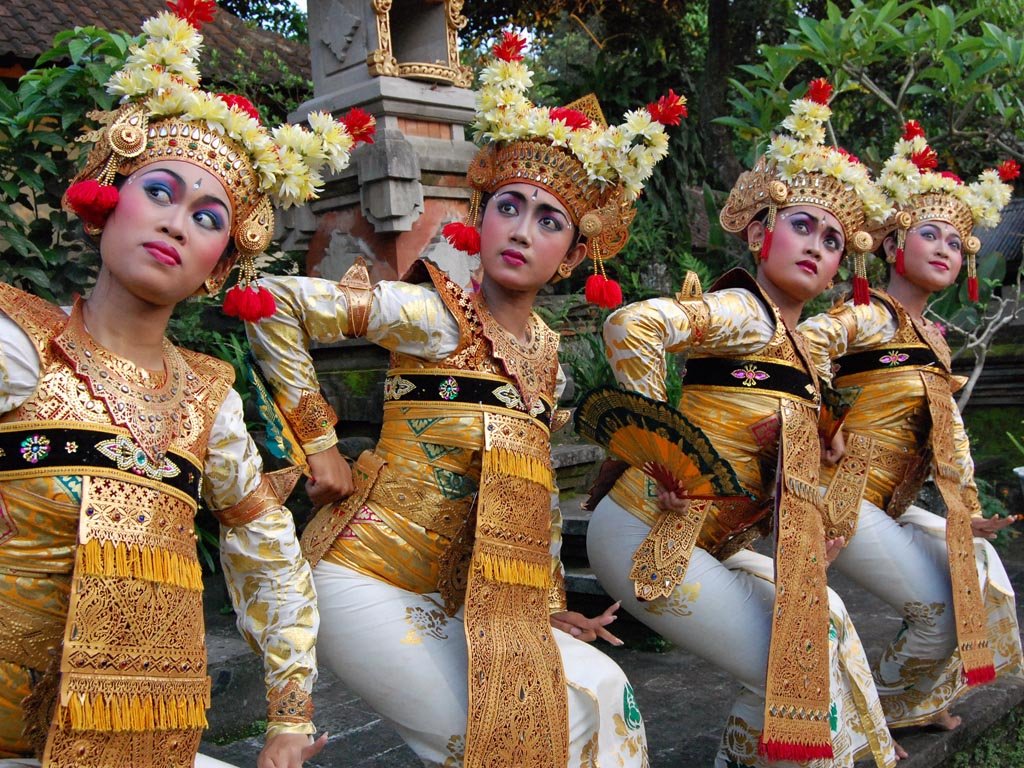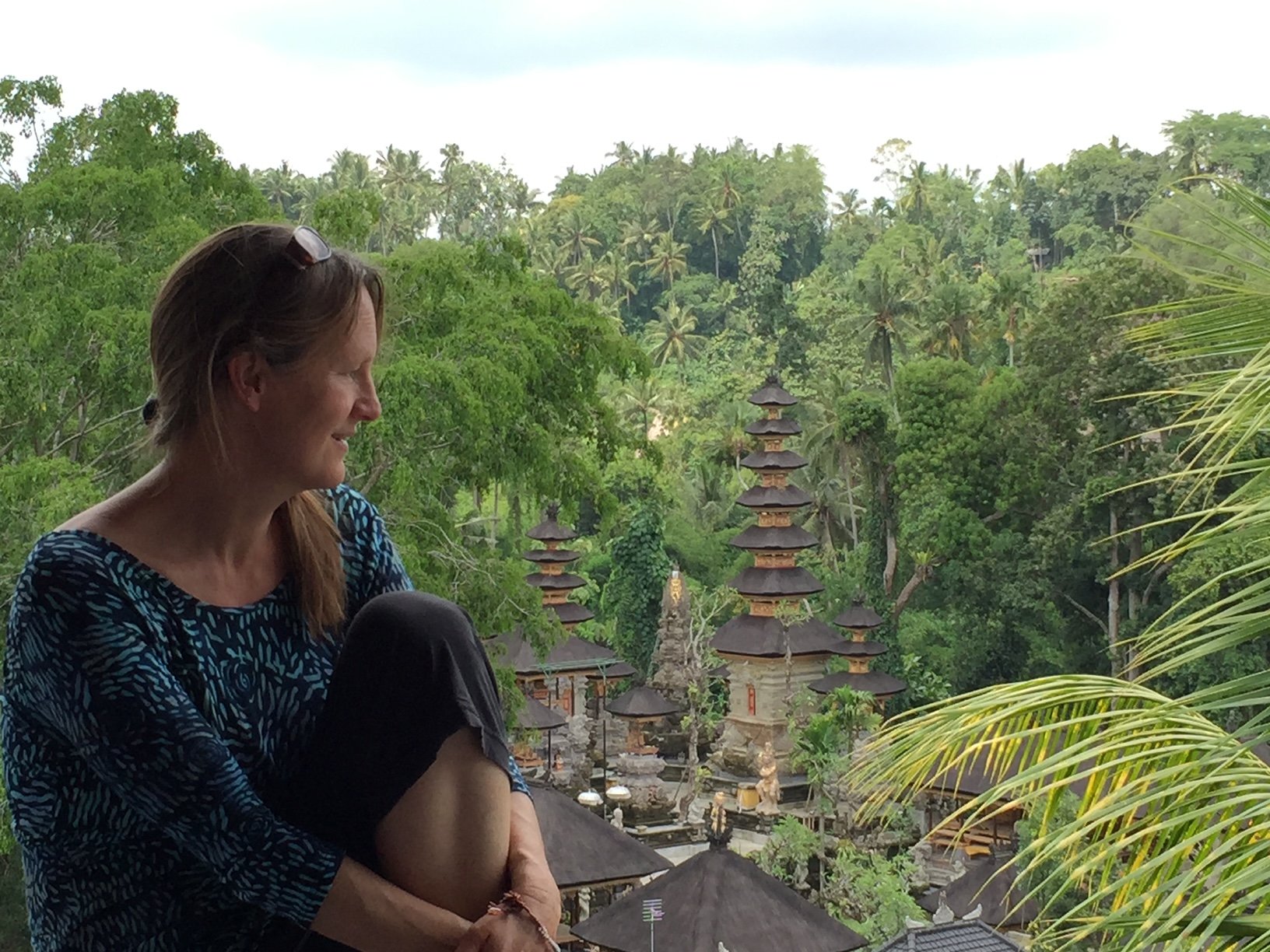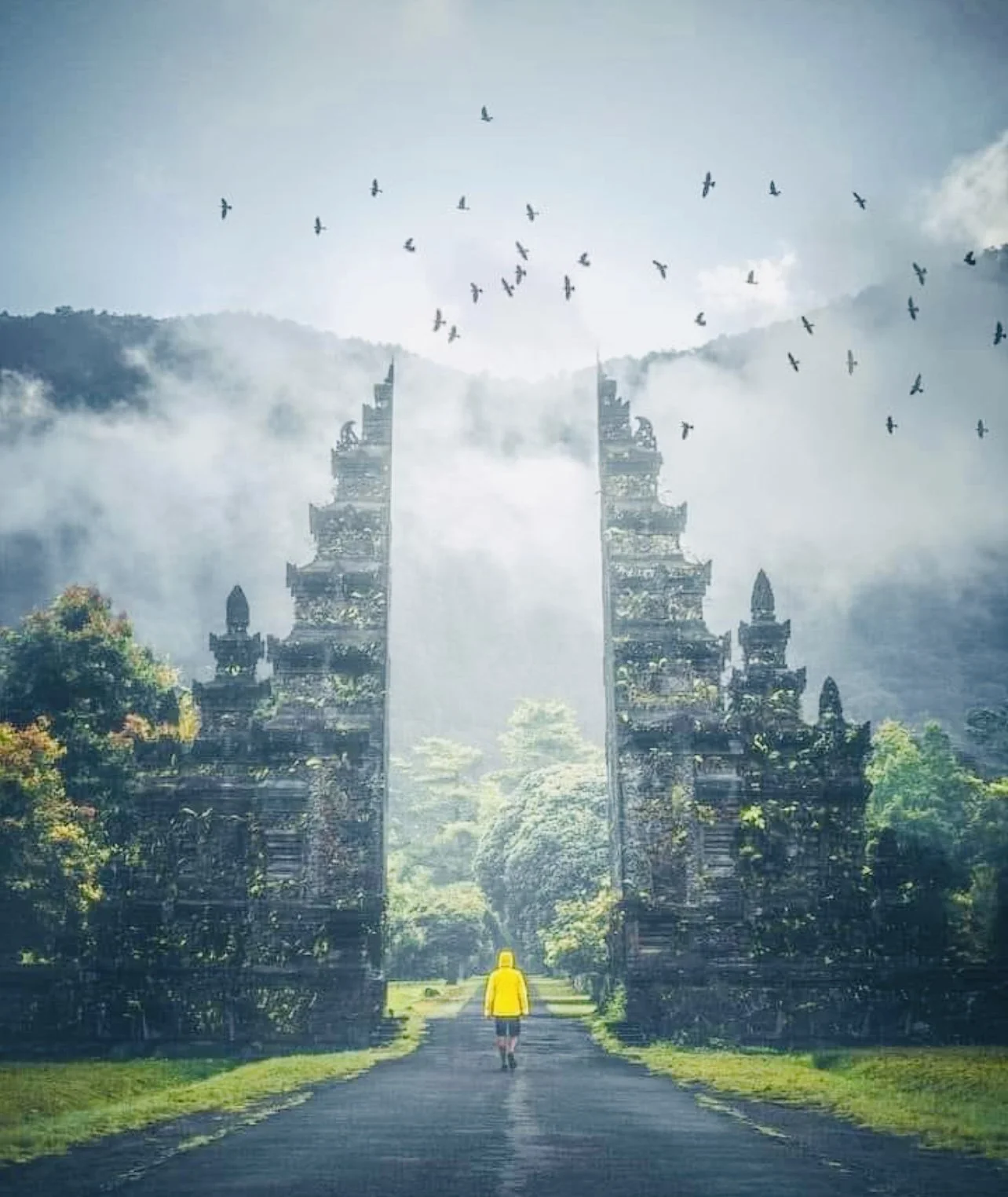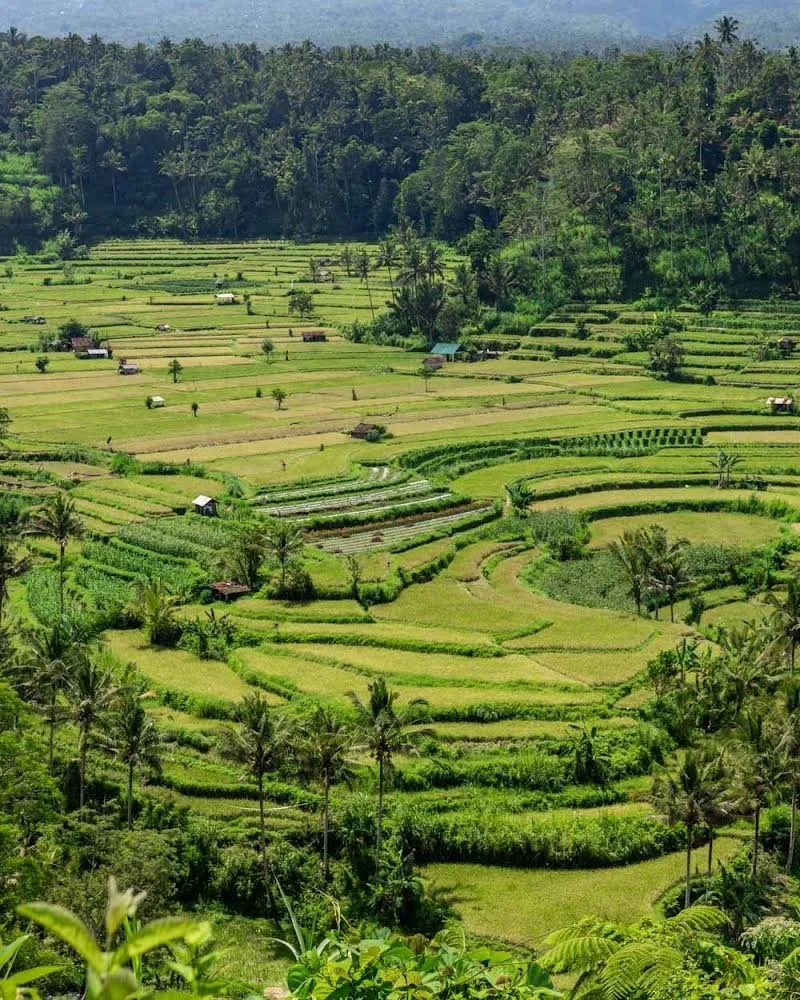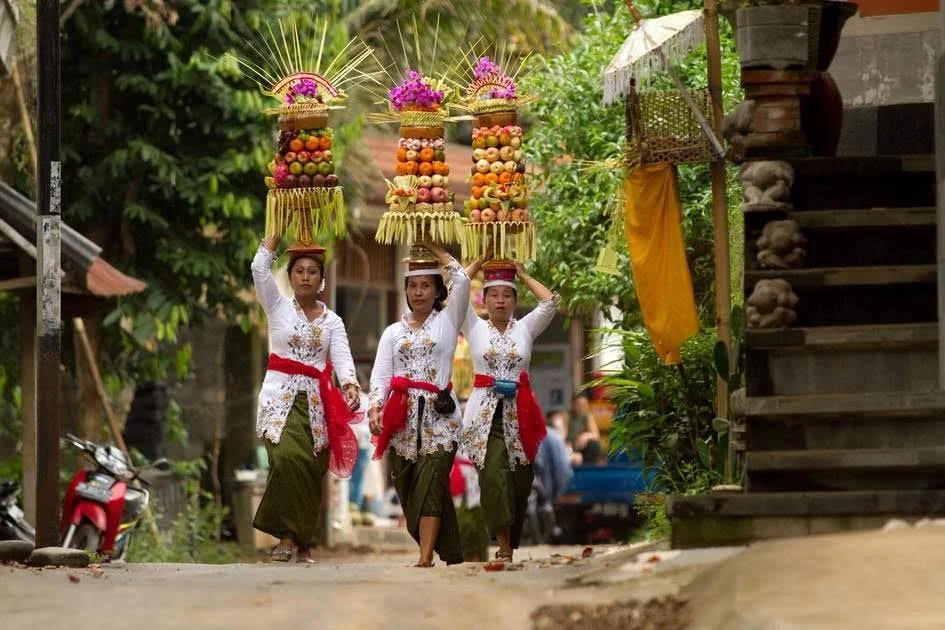
BALI
Bali, with its rich cultural heritage and stunning natural landscapes, offers a perfect match for travelers. Enjoy an immersive and diverse learning experience, combining history, religion, and biology within the island's captivating cultural and natural landscapes.
Exploring
Bali’s Heritage
Participants will be encouraged to analyze Bali's religious evolution, societal structures, and cultural dynamics, examining the intersections of colonization, religious systems, class, gender, and art, while tracing the impact of nature, climate change, and biology on the island’s development. Embracing Tri Hita Karana and its adaptability to desa, kala, patra (place, time, circumstance), this approach fosters curiosity, collaboration, and diverse perspectives. There will be ample opportunity for introspection and cross-cultural engagement, including joint art and nature projects with Balinese youth. Through this immersive experience, individuals engage deeply with Bali's unique ambience, cultivating understanding, empathy, and a sense of global interconnectedness.
Our Location: Tejakula
A Journey Through Time
Tejakula is an old Apanaga village located in the northern part of Bali, Indonesia. Apanaga villages trace back to the 11th century Balinese Kings, and even today, the heads of Tejakula’s Traditional Council rule by descent. Tejakula is situated in the regency of Buleleng, known as “Segara Gunung” (Sea and Mountain) where the old mountain villages sweep down to meet the bronze age harbours and coastal plains. The village boasts mountain and forest landscapes, volcanic black sand beaches and traditional farming and fishing communities. Tejakula offers visitors a quiet and more authentic Balinese experience compared to the bustling tourist areas in the south.
In addition to its natural beauty, Tejakula is home to cultural attractions and spiritual sites. Visitors can explore important temple sites such as the 5000-year-old Pura Ponjok Batu, known for its holy springs which bubble up from under the sea. The village also hosts traditional ceremonies and festivals throughout the year, offering insight into Balinese culture and spirituality.
The Gaia Oasis
Gaia-Oasis Foundation aia-Oasis Foundation offers a unique blend of serenity and community engagement. The foundation runs an extensive social and community program in collaboration with local and international partners, including the Red Cross, Reefcheck Indonesia, and One Tree Planted (OTP). Operating directly under the Head of Tejakula’s Traditional Council, the Foundation’s Board of Trustees includes members from Europe, Asia, and Australia. Nestled between a vibrant hamlet and a protected forest, the Foundation’s “Abasan” property provides a soundscape of nature interwoven with local music and village life. Here, amidst 4 hectares of lush grounds, visitors can experience a harmonious balance of relaxation and exploration.
At Gaia-Oasis, guests are welcomed into a home away from home, where tranquility meets adventure. It is a place to indulge in moments of deep relaxation, breathe in the crisp mountain air, and enjoy easy access to the nearby ocean.
Accommodation & Food
Abasan at Gaia Oasis comprises Balinese-style bungalows and guest rooms, with expansive garden views. The larger homes have comfortable rooms to sleep 2–4 guests and open-air bathrooms, ensuring comfort and tranquility.
The dining terrace, shaded by trees and bamboo, overlooks a verdant valley and offers a variety of vegetarian dishes influenced by Indonesian and Western cuisines. Special dietary requirements are catered to with care, and guests can enjoy mineral water, herbal teas, and Balinese coffee throughout the day.
Bali offers an immersive learning experience…
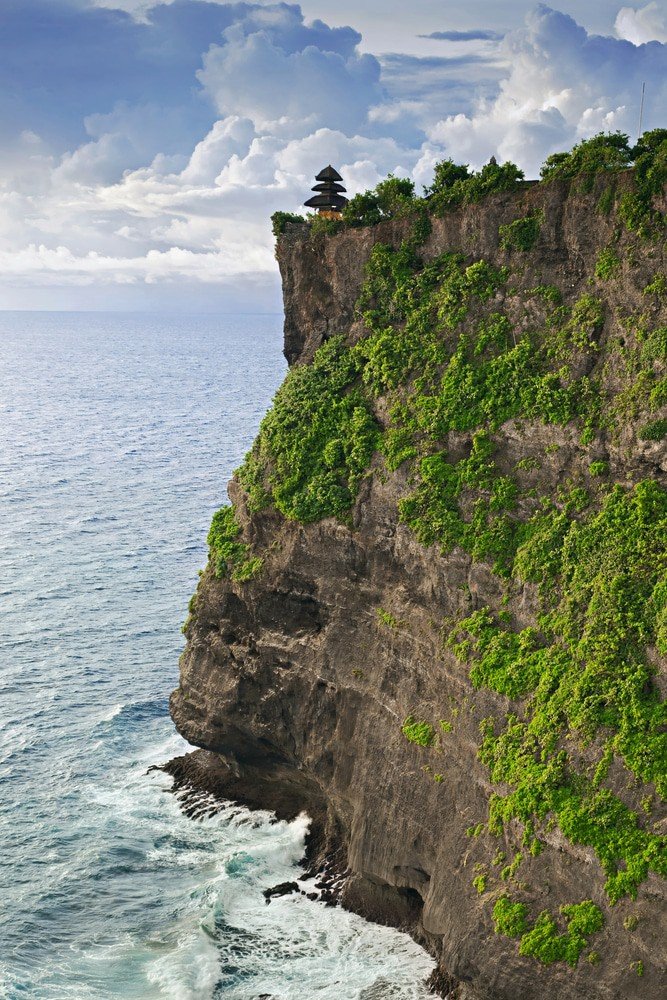
Activities
-

Relax & Explore
There is an inviting large saltwater pool, set against panoramic views, suitable for swimming laps. We also have areas to exercise, relax, or just sunbathe on its stone terrace. There is a network of walking trails that allows for exploration of the estate and surrounding landscapes, from orchards to jungle gorges.
-

Mindfulness & Yoga
Meditation and mindfulness sessions take place in the Mountain Lotus Shala. Additionally, the Forest Shala provides a tranquil setting for yoga practice, with sea glimpses and the soothing sounds of nature, creating a perfect environment for relaxation and rejuvenation.
-

Journey Towards Sustainability
Abasan's commitment to sustainability is evident in its water management, organic gardens, and energy-saving initiatives. Visitors are welcome to actively contribute to the foundation's ongoing journey towards greater harmony, and sustainability.
-
Guided Tours of Historical Sites
Bali’s villages are living historical sites, with traditions and practices from the Neolithic to the post-colonial period. There will be opportunities to visit old “banua” villages, to experience ancient sites like Ponjok Batu sea temple with its megalithic stones and sarcophagus and 11th century “Kingdom Period” temples like Gunung Kawi, or to take in colonial period palaces.
-
Museums & Cultural Landmarks
The island is home to museums like the Batur Geopark Museum, the Pejeng Antiquities Museum, the Karangasem Lontar Museum and the Setia Darma house of Masks and Puppets, showcasing the natural history, and religio-artistic evolution of Bali. These institutions offer deep insight into the island’s history and traditional arts.
-
Lectures & Workshops
Local scholars and village elders can offer valuable insights into the evolution of Balinese civilization, from its ancient kingdoms to its vibrant modern cultural identity. These sessions can provide a deeper understanding of the island's rich traditions, artistic heritage, and societal developments, fostering a greater appreciation of Bali's unique journey through time.
World Religion
Visits to Sacred Sites & Temples
Bali’s religious practices have evolved to include pantheism, ancestor worship, Siva-Budha syncretic practices, Waisnawa ‘holy water’ rituals, to a modern form of “Balinese Hinduism”, providing a unique opportunity for visitors to explore the development of Bali’s religious practices in cultural context.
Interactions with Local Religious Leaders
Participants can engage with Balinese Hindu priests, village elders, and local practitioners to gain a deeper understanding of the rituals, spiritual beliefs, and cultural values that form the foundation of the Balinese Hindu community, offering a unique perspective on their way of life.
Comparative Studies
Bali's rich and diverse religious landscape also includes mosques, churches, and Buddhist temples, providing unique opportunities for comparative studies on various world religions and their distinct practices, beliefs, and traditions, all within the context of the island's vibrant, multicultural society.
Biology
Field Trips to Diverse Ecosystems: Bali's natural beauty encompasses diverse ecosystems, from lush rice terraces to dense jungles and coral reefs. Participants can explore places like the Besikalung Wildlife Sanctuary and the Jatiluwih UNESCO heritage listed rice fields, to study different habitats and biodiversity.
Workshops on Local Flora and Fauna: Expert-led workshops may focus on Bali's unique plant and animal species, including their ritual footprints. Topics may include endemic species, conservation challenges, and sustainable practices.
Practical Activities: Visitors can engage in wildlife observation, snorkeling excursions to study marine ecosystems, and ricefield treks to explore traditional water cycles.



